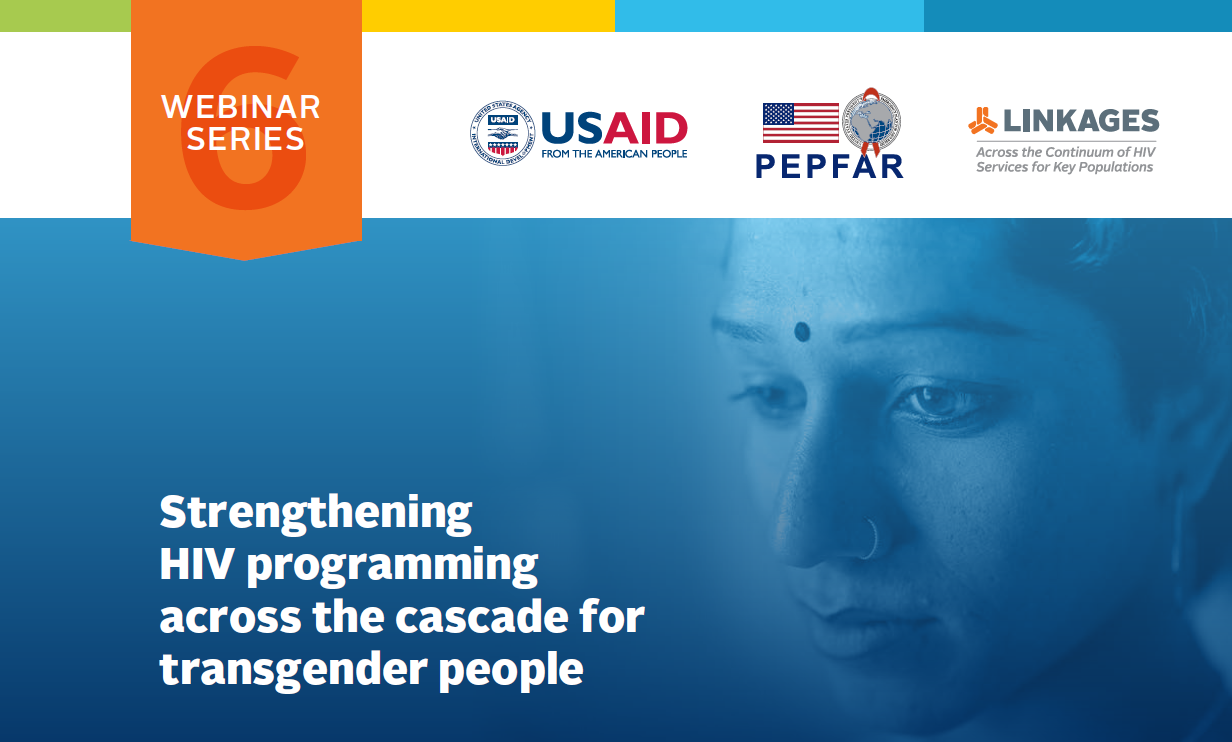Event Date
Webinar hosted by the LINKAGES project as part of the Key Populations: Evidence in action series.
To access the audio recording of the webinar, please click here.

On July 12th, the USAID– and PEPFAR-supported LINKAGES project hosted the sixth webinar in a webinar series entitled Key Populations: Evidence in Action. This webinar explored the need for greater attention to and investments in HIV programs that serve transgender people. Presenters shared evidence-based arguments for trans-specific programming, as well as highlighted trans-competent approaches to HIV programming that show promise for improving service uptake across the cascade. The webinar also examined the strategic information needed to effectively plan and monitor trans-specific programmatic efforts and best practices for collecting that information.
JoAnne Keatley, Innovative Response Globally for Trans Women and HIV (IRGT)
Making the case for trans inclusive programming
Sari L. Reisner, Transgender Health Research, Boston Children’s Hospital, Harvard Medical School, Harvard T.H. Chan School of Public Health, Fenway Institute at Fenway Health
“Counting” transgender: Tools for global HIV programming
Rena Janamnuaysook, Tangerine Community Health Center, Thai Red Cross AIDS Research Centre
The importance of trans comprehensive health services to the HIV response: Lessons learned from Tangerine Community Health Center
Rachel Eersel, FHI 360/LINKAGES Suriname
Stronger than before: Experiences with trans-specific programming in Suriname
This webinar series is intended to be a platform for (1) sharing state-of-the-art knowledge, emerging evidence, and promising practices for achieving greater impact on the HIV epidemic through programs for key populations; (2) addressing pressing questions and controversial issues from the perspective of key population experts and community members; and (3) fostering dialogue among a broad set of partners working in key-population-focused research, programming, and advocacy.
The webinars will cover a range of topics, including introduction and scale-up of HIV self-testing and pre-exposure prophylaxis for key populations; cascade monitoring and data use; information and communication technology-based interventions; effective strategies for addressing violence, stigma, and discrimination; differentiated models for delivering antiretroviral therapy; and community empowerment.
This webinar series is open to anyone interested in key populations, including program implementers, researchers, policy-makers, advocates, funders, and community members.
